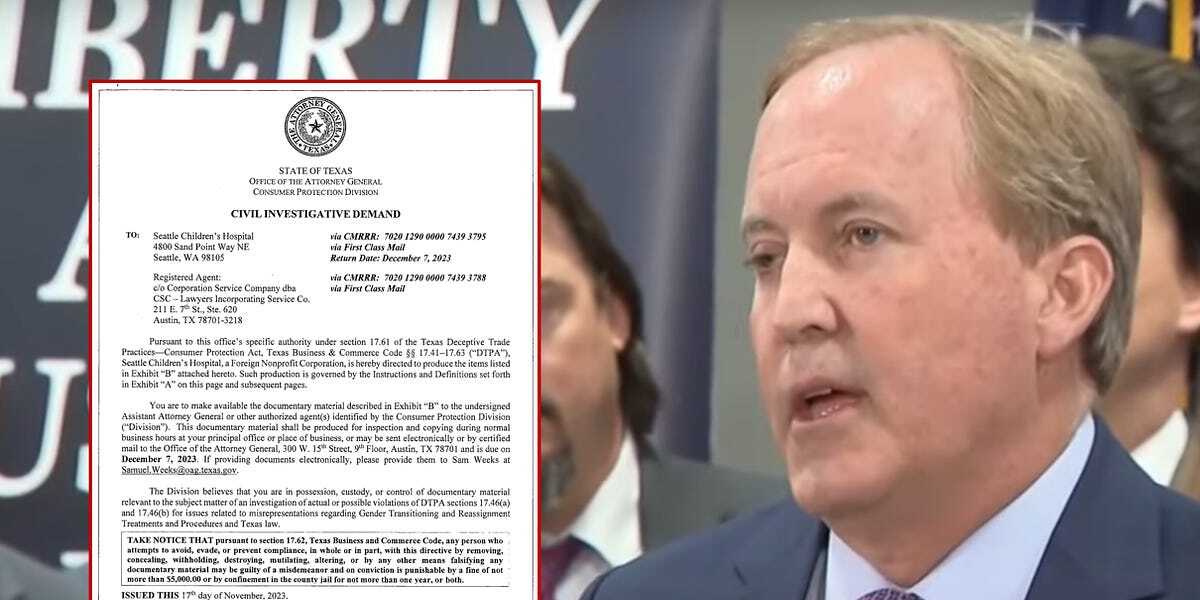Excerpts:
“Seattle responded to the request by filing a lawsuit in Travis County, stating they cannot comply because Texas has no jurisdiction in Washington State, and no care was provided by the hospital in Texas. They also point out that the Dormant Commerce Clause, protected by the United States Constitution, “protects the right to interstate travel, including to obtain healthcare services.” By targeting out-of-state hospitals for enforcement of laws that only apply within the jurisdiction of Texas, they “discriminate against healthcare based on an interstate element,” violating constitutional protections, according to the legal filing. Lastly, Seattle Children’s Hospital cannot comply due to a shield law passed by Washington State. This law bars the hospital from providing any patient data and from responding to subpoenas pursuant to “protected healthcare services” obtained within the jurisdiction of Washington. Protected healthcare services include abortion, reproductive care, and gender-affirming care.”
“This case promises to be extraordinarily complex. Seattle Children’s Hospital is challenging the jurisdiction of the demands directly in a Texas state court. Regardless of what the local court decides, the claims are likely to go to the Texas Supreme Court. Given that the claims also have a time limit on them and that appeals in Texas automatically favor the attorney general due to an automatic lifting of stays in the state, Seattle Children’s Hospital workers and providers for trans patients from Texas could be under legal jeopardy. Ultimately, the case presents questions of conflicting state laws and regulation of conduct across state lines, and the implications of those laws could be dire for abortion and trans care nationwide.”



“With limited exceptions, HIPAA’s privacy rules preempt any contrary requirement of state law unless the state law is more stringent than the federal rules.” In re Collins, 286 S.W.3d 911, 917 (Tex. 2009) (citing 45 C.F.R. § 160.203).